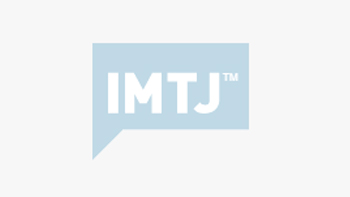Turkey could earn $8 billion from health tourism annually starting from 2015 provided the government introduces tax incentives for the sector, a report by the Foreign Economic Relations Board (DEÄ°K) has said. The government has not yet made any response.
Turkey could earn $8 billion from health tourism annually starting from 2015 provided the government introduces tax incentives for the sector, a report by the Foreign Economic Relations Board (DEİK) has said. The government has not yet made any response.
DEİK’s health tourism report says the sector needs a value-added tax incentive for a sustainable rejuvenation in the years to come. It argues that Turkey is among the few countries that offer vast opportunities in health tourism, and could attract one million patients a year if the necessary infrastructure is established. The introduction of a tax refund on health tourism services would boost this promising industry, and would ensure sustainable growth in the long-term, injecting new life into the sector.
DEİK argues that Turkey, India, Israel and Singapore will be the global health tourism market leaders by offering affordable prices in health care services. Turkey currently attracts 30,000 to 40,000 international patients. According to the report, India, Turkey, Thailand, Singapore and Taiwan lead the current global health tourism industry, based on price comparisons rather than numbers of medical tourists. The report suggests that a unit must be formed within the Ministry of Health to promote health tourism.
According to the Turkish Health Tourism Organization (TUHETO), of the 27 million tourists who visited Turkey in 2009, some 871,000 where nationals of Kazakhstan, Azerbaijan, Kyrgyzstan, Uzbekistan and Turkmenistan. Ibrahim Artukarslan of TUHETO hopes health tourism in the future will attract as many tourists as normal tourism attracts to Turkey,” Our message is that Turkey is not only about sun, sea and sand, but it is also a health destination, which has the facilities to receive many more patients from overseas.” At present the share of health tourism of all arrivals to Turkey is small. However, there are numerous travel agencies in the United States, Germany and Central Asia that market health tours to Turkey, including laser eye operations and IVF treatment.
TUHETO held a workshop in Almaty, Kazakhstan, and plans to organize workshops in several other locations overseas, including Brussels, Frankfurt, Dubai, Azerbaijan, Russia, Croatia, Ukraine and Libya. TUHETO was founded in 2009 and has some 60 members, including private hospitals, thermal resorts and spa hotels as well as four and five star hotel chains.
There is a revival in health tourism activities in Turkey’s southeastern cities, according to Dr. Azmi of the Universal Hospitals Group. Wealthy Middle Easterners, who might face trouble getting visas for Western countries, are choosing Turkey as a health care services destination, he says. For health care tourism, Turkey has all the appropriate facilities. Antalya, Ankara and Istanbul have many health care tourism attractions and destinations. Afyonkarahisar city also has many thermal springs.
DEIK argues that the factors that make Turkey attractive in terms of health care tourism are:
• Large-scale private sector investment in health care.
• Rapid increase in number and variety of hospitals, medical centres, clinics and thermal spas.
• Trained qualified medical staff.
• The latest technology.
• Substantial price advantage.
It also lists factors that restrict growth:
• Legal regulations prevent the use of foreign doctors in Turkey.
• International accreditation is essential.
• Professionals and auxiliary staff need to speak foreign languages.
• There is a need for more hospital beds.
• Overseas Middle Eastern investors need incentives to develop thermal tourism.
• There should be organized overseas marketing, with hospitals working together.
• Greeks find it very difficult to get visas to go to Turkey








 ©2024 All rights reserved LaingBuisson
©2024 All rights reserved LaingBuisson 


